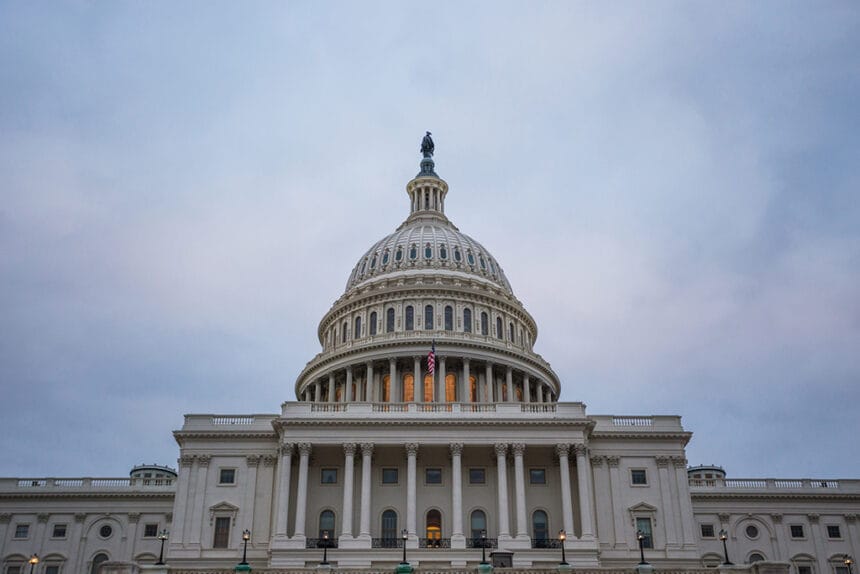The significant public health strides the U.S. has made over the past two decades to tackle the HIV/AIDS epidemic at home and abroad are on shaky ground heading into 2024.
At the end of September, Congress failed to reauthorize funding for the U.S.-led global HIV initiative known as the President’s Emergency Plan for AIDS Relief (PEPFAR), leaving the program in jeopardy going forward.
PEPFAR, which was passed in 2003 under the George W. Bush administration, has historically seen bipartisan support. Lawmakers and public health advocates on both sides of the aisle have long considered the program a success in driving down rates of HIV/AIDS around the world by providing antiretroviral treatments as well as HIV testing and prevention services.
“Few global health initiatives have had the impact that PEPFAR has had in its 20 year history,” Jed Meline, director of policy and advocacy at Project Hope, told MM+M. Meline added that in those two decades, PEPFAR has saved an estimated 25 million lives.
PEPFAR’s abortion issue
However, despite these accomplishments in handling the disease, some Republican lawmakers on Capitol Hill have raised opposition to the program over the last year. At the center of the debate are claims that PEPFAR is linked to abortion services globally.
Rep. Chris Smith, (R-N.J.), has led the opposition effort against reauthorizing PEPFAR, arguing that it had been “reimagined” and “hijacked” by the Biden administration to empower “pro-abortion international non-governmental agencies, deviating from its life-affirming work.”
Those claims can be traced back to a report released by the Heritage Foundation, a conservative think tank, in May. The report alleged that the program was being misused by the Biden administration to “promote its domestic radical social agenda overseas,” including abortion. The report pressed for a total restructuring of the program.
Meline and most of PEPFAR’s advocates counter the Heritage Foundation’s paper and argue its claims are unfounded.
“There’s no evidence that program funds were ever used in any way, shape or form for abortion services,” Meline said.
That sentiment has also been echoed by Ambassador John Nkengason, who heads PEPFAR.
In June, Nkengasong said the program does not provide abortions and added that PEPFAR has operated in a manner “consistent with longstanding legal restrictions” on the use of foreign assistance funding related to abortion.
Still, the claims were enough to throw a wrench into the reauthorization process.
Smith has pushed for new anti-abortion restrictions to be added into the program in order to approve funds for one more year. While there were talks briefly about a compromise that would give the program funding for one more year, those have since fizzled out, with Democrats refusing to make changes to the program.
It doesn’t appear the program’s opponents are backing down anytime soon.
“I am not going to roll over nor are my colleagues in the House,” Smith recently told POLITICO.
Uncertainty continues
As such, the gridlock is expected to extend into 2024, leaving several aspects of the program in jeopardy.
“John Nkengasong and the people at the State Department, USAID, and the CDC that implement the program are going to do everything they can so there is no [major] impact,” Meline said. “They’re going to do everything within their power to ensure that people continue to get retrovirals and receive the messages to prevent the spread of the virus. That’s going to continue to the fullest extent possible.”
Still, the biggest cracks are expected to appear in the U.S.’s leadership power when it comes to rolling out new HIV/AIDS innovations in the rest of the world. Meline said the nation’s role at the forefront of the push to eradicate HIV would be the “biggest tragedy” if PEPFAR isn’t reauthorized
“The success of PEPFAR is not just the money by any means,” Meline said. “It’s built on courageous U.S. leadership that can get countries to take challenging technical innovations and bring them into the field. Bipartisan support from Congress and the White House enables our ambassadors to support their local leaders to move these things forward. That’s where the first effects will be felt.”
State Department spokesperson Matthew Miller also noted that the fact that Congress did not re-authorize the program sends a message to U.S. allies that the country is backing down from its responsibility in ending HIV/AIDS as a public health threat.
Supporters have argued that failing to reauthorize the program would risk the goal of ending the global AIDS epidemic by 2030.
Additionally, the ripple effects may extend even beyond HIV/AIDS and impact other aspects of public health, according to Rabih Torbay, president and CEO of Project Hope.
In a recent blog post, Torbay argued that PEPFAR is an established system that could be used to address other emerging diseases and future pandemics. It has already been used in response to COVID-19, flu and Ebola, among other health crises over the past decade.
From a strategic perspective, congressional Democrats have staked out a position that favors extending a lack of reauthorization instead of opening up the program to the restructuring that opponents have asked for.
It’s not worth risking a program that has seen such a high level of success, and historically unprecedented bipartisan support, Meline explained.
“PEPFAR has always been able to pull together a unique group of people that can agree on almost nothing else,” Meline said. “Our hope is that maybe after the election, we can convince [Rep. Smith] to go back to being the ardent supporter for HIV/AIDS work that he has been for 20 years.”







